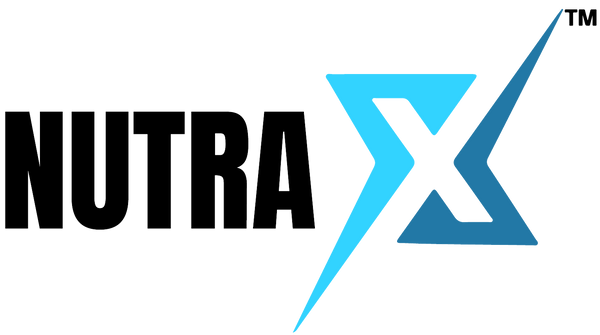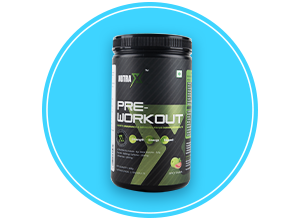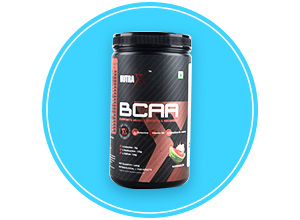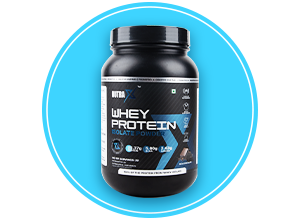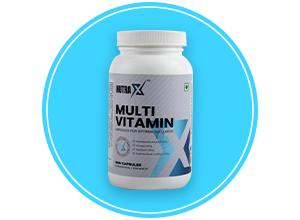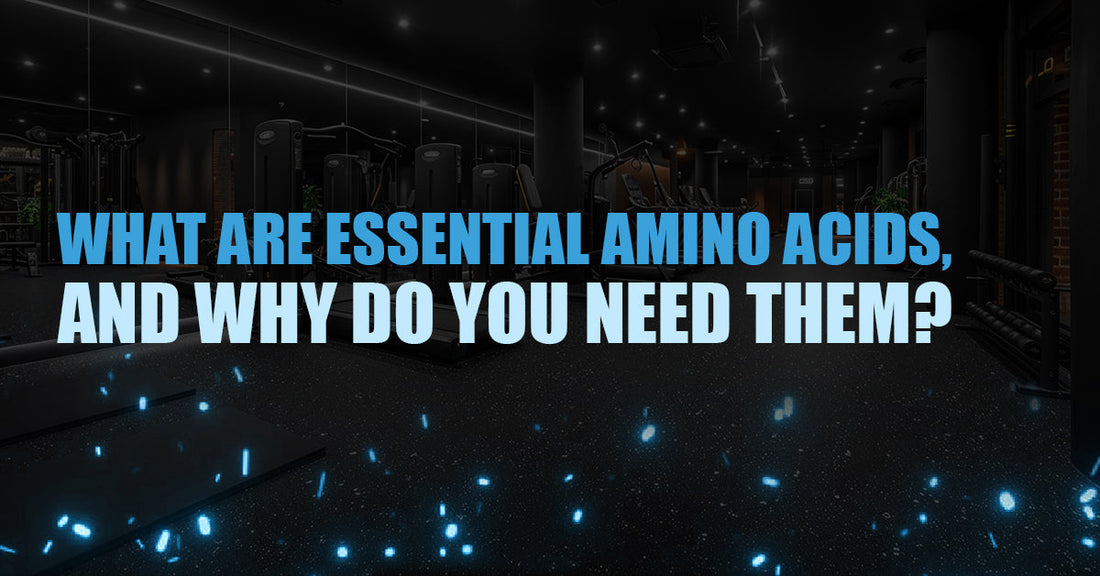
What Are Essential Amino Acids, and Why Do You Need Them?
Share
Proteins are made up of amino acids, which your body uses to build and maintain muscle, enzymes, hormones, and immune cells. Out of the 20 amino acids your body requires, nine are considered "essential." This means your body can’t produce them on its own; you have to get them from food.
These nine essential amino acids are histidine, isoleucine, leucine, lysine, methionine, phenylalanine, threonine, tryptophan, and valine. Each one plays a specific role in maintaining your body’s health and function. Here's a closer look at what they do and why they matter.
The Nine Essential Amino Acids and Their Functions
- Histidine: Needed to produce histamine, a neurotransmitter involved in immune responses, digestion, and regulating sleep cycles.
- Isoleucine: Supports muscle metabolism, energy production, and immune function. It also helps make hemoglobin.
- Leucine: Crucial for muscle growth, it activates pathways in the body that trigger muscle protein synthesis and helps regulate blood sugar.
- Lysine: Helps form collagen, supports calcium absorption, and plays a key role in immune function and energy production.
- Methionine: Essential for tissue repair and detoxification. It also helps your body absorb selenium and zinc and supports the creation of important molecules like SAM-e.
- Phenylalanine: Acts as a building block for neurotransmitters like dopamine, epinephrine, and norepinephrine, affecting focus, mood, and stress response.
- Threonine: Supports the structure of skin and connective tissue, helps with fat metabolism, and plays a role in immune response.
- Tryptophan: Required for producing serotonin, which regulates mood, appetite, and sleep. It also helps maintain nitrogen balance.
-
Valine: Aids in muscle repair, energy production, and proper nervous system function. Like leucine and isoleucine, it’s a branched-chain amino acid (BCAA).
Why These Amino Acids Matter
Together, these amino acids are essential for your body’s ability to build and repair tissue, generate enzymes and hormones, and maintain overall health. If even one is missing in your diet, protein synthesis becomes inefficient, affecting muscle strength, immunity, and more.
- For Muscle Growth: Leucine is especially important for enabling the body to start building new muscle. Isoleucine and valine also contribute to energy production during physical activity.
- For Healing and Immunity: Histidine, lysine, and methionine play important roles in healing wounds, forming connective tissue, and supporting your immune system.
-
For Mood and Metabolism: Tryptophan helps produce serotonin, which influences mood, sleep, and appetite. Phenylalanine helps make dopamine and other mood-regulating chemicals.
Signs You May Be Lacking Essential Amino Acids
Your body doesn’t store essential amino acids, so you need to consume them regularly. Signs of deficiency can include:
- Muscle loss or poor recovery
- Fatigue and weakness
- Slower wound healing
- Weak immune function
- Skin, hair, and nail issues
- Mood swings or sleep problems
People on restrictive diets, especially poorly planned vegetarian or vegan diets, may miss out on certain amino acids if they aren’t eating a variety of protein sources.
Best Food Sources of Essential Amino Acids
Complete protein sources contain all nine essential amino acids. These include:
- Animal-based: meat, poultry, fish, eggs, and dairy products
- Plant-based: soy (tofu, tempeh), quinoa, buckwheat, hemp seeds, chia seeds, and amaranth
Instead of relying solely on plant-based protein combinations, you can choose NutraX 100% Whey Protein Isolate, a complete protein that naturally contains all nine essential amino acids in optimal ratios. It’s convenient, fast-digesting, and scientifically proven to support muscle growth, repair, and overall performance without the trial-and-error of mixing multiple foods.

Do You Need Supplements?
Most people can meet their amino acid needs through food. But in certain cases, supplements might help:
- Athletes who want faster muscle recovery or enhanced muscle growth
- Older adults trying to maintain muscle mass
- People recovering from illness or surgery

If you’re using amino acid supplements, stick to the recommended dosage and consult your doctor if you have any medical conditions. More isn’t always better; too much can lead to side effects like nausea or changes in blood pressure.
How to Meet Your Needs Naturally
- Eat complete proteins often: include foods like eggs, chicken, fish, tofu, or quinoa in your meals.
- Mix plant proteins: combine foods like beans and rice or hummus and whole grain bread to get a full amino acid profile.
- Time your intake: after workouts or physical activity, your body is primed for muscle repair; this is a great time to include high-protein foods or supplements.
-
Monitor your intake: aim for about 0.8 grams of protein per kilogram of body weight per day. This can be higher if you're active or recovering.
Final Thoughts
Essential amino acids are just that essential. They keep your body running at its best by supporting everything from muscle repair and metabolism to immunity and mental health. You can get all nine through a well-rounded diet, whether you eat meat or follow a plant-based lifestyle.
If you're training hard, aging, or recovering from an illness, make sure you're paying attention to both the quality and quantity of the protein you consume. Supplements can help in some cases, but a diet rich in diverse, whole foods is the best foundation for long-term health.
You May Also Like to Know:
